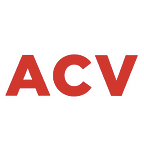“The venture capital business is a 100% game of outliers — it’s extreme exceptions” — Marc Andreessen, Co-Founder, and Partner at Andreessen Horowitz.
The oldest record of whaling dates back to 670 when some Basques sent a shipment of oil down the Seine River. In the 11th century, activity was followed by the Dutch and British, later by Americans, Norwegians, and other nations.
Some businessmen contributed capital to pay for the expedition and appointed a captain to lead the hunt to return with the warehouses full of meat and oil. It was a risky activity that developed innovation in the use of the animal for multiple purposes (eg. food, fuel) and that could generate a very significant economic return to the investors.
What is the relationship between whaling and venture capital? The activity of hunting whales can be considered as a precursor of Venture Capital, since it consists of private financing from investors (individual or institutional) who provide money to entrepreneurs and their startups for the development of an idea, usually disruptive and innovative, with high growth potential in the long term and the expectation of spectacular financial returns.
In modern times, in 1946, Georges Doriot, Ralph Flanders, Merrill Griswold, and Karl Compton founded the American Research and Development Corporation (ARDC), a company that raised USD$3.5 million to invest in technology commercialization projects developed during the Second World War.
ARDC was instrumental in the formation of other venture capital funds, such as Greylock Partners and Morgan Holland Ventures.
Venture capital has become an additional source of funding. More than USD$1.5 trillion was invested in this asset class globally between 2010 and 2019, according to data from Crunchbase. In 2019 alone, around 300,000 transactions were invested across the venture capital cycle (seed capital, early-stage, growth stage, and pre-IPO).
Investment in venture capital, as a percentage of GDP, speaks of the level of development of an economy. The United States invests 1.3% of GDP in venture capital, Israel 2.1%, and Singapore 2.5%. These three countries have a per capital income greater than USD$32,000. Emerging economies such as China invest 1.8%, India, 1.1%, Brazil, 0.2%, and Mexico, <0.1%, all of them with a per capita income of less than USD$15,000, according to data from the Global Innovation Index.
The impact of Venture Capital on innovation is undeniable. Economies such as the United States, Singapore, and Israel rank 3, 8, and 13, respectively, in the 2020 global innovation rankings. By comparison, China ranks 14, India 48, Mexico 55, and Brazil at 62 of the same index.
Venture Capital investment translates into economic development, innovation, entrepreneurship, and competition. The development of the venture capital ecosystem is reflected in a greater or lesser extent in the number of unicorns (companies with a valuation of more than USD$1 billion).
The United States has 235 unicorns; China, 118; Israel, 7; Brazil 7; Singapore, 3; and Mexico 2.
Venture capital is an asset class with a high risk-return profile. As an investor, it is important to allocate a percentage of the investment portfolio to Venture Capital (through funds or directly) to diversify risk.
It is important to develop a genuine entrepreneurial culture in any country based on education, professional experience, and business networks, taking as an example the development of other ecosystems such as the United States, Israel, and China.
The key is a rigorous, high-quality, technology-based education, and enriching the previous work experiences. Besides, productive work culture is required, with pre-established objectives and goals, and focused on results. Both entrepreneurs and investors must develop a risk appetite.
The only way to drive technology, innovation, and economic development is to take risks. A country that does not take risks and responsibility, without talent development, without investment or competition, and without a long-term vision, is destined to fail.
“In a world that is changing really quickly, the only strategy that is guaranteed to fail is not taking risks” — Mark Zuckerberg, founder and CEO of Facebook.
Note: please refer to the original publication at EL CEO: https://elceo.com/opinion/venture-capital-como-palanca-de-desarrollo-en-mexico/
Hector Shibata. Director of Investments & Portfolio at ACV a global Corporate Venture Capital (CVC) fund and Adjunct Professor for Entrepreneurial Finance.
Ana Maury Aguilar. Investment analyst at ACV.
ACV is an international Corporate Venture Capital (CVC) fund investing globally in Startups & VC funds.
Stay updated about Venture Capital, innovation, entrepreneurship and more! Sign up for AC Venture’s monthly Newsletter.
Follow us on LinkedIn: ACV_VC
Follow us on Twitter: acv_vc
Follow us on Spotify: ACV_VC
